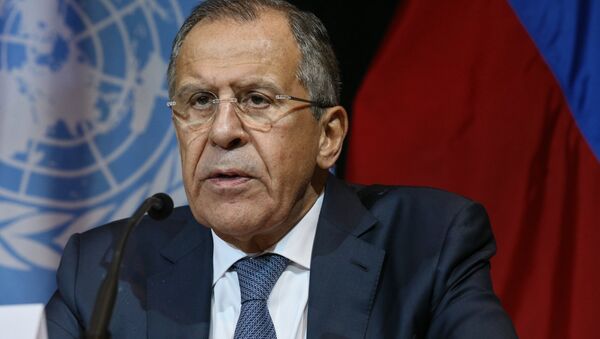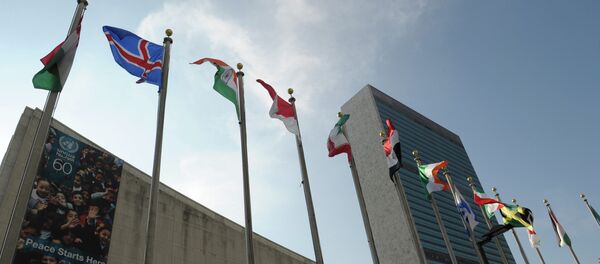During the UN Security Council meeting in which the 15 member voted unanimously to approve new draft resolution for ending the Syrian conflict, Lavrov praised the agreement's potential for creating an opportunity to create a united anti-terrorism front.
"Today's unanimous vote in the Council should pave the way for the formation of a broad front against terrorism on the basis of the UN Charter, with the support of all on Earth who are opposed to terrorism, including the army of Syria, the Kurdish militia, and the armed forces of the Syrian patriotic opposition," Lavrov said. "The air force of the Russian Federation, at the request of the legitimate government of the Syrian Arab Republic, is contributing to the completion of this task."
"It is important that today the UN Security Council once again confirmed the necessity of respecting the sovereignty of the Syrian Arab Republic," he added.
That means that a military solution should be avoided, even if some UN members are pushing for that option.
"The key principle is that only the Syrian people can determine the fate of their country. Everyone agrees on this principle but I will not hide that not all have abandoned preconditions and not all have abandoned their own interpretation of how this principle can be implemented in practice," Lavrov said. "Not all have refused the possibility of a military solution to the Syrian crisis, which is absolutely unacceptable for us."
Lavrov also stressed that everyone shares the belief that terrorists should play no role in the peace talks, saying that "all are united in their belief that terrorists of all kinds have no place at the negotiation table, neither do those who allow a military solution."
The lead role in mediating the peace process will be overseen by UN Special Envoy Staffan de Mistura. Lavrov said that Russia is prepared to organize a meeting to assist in that effort.
The resolution also demands that all parties allow the distribution of humanitarian aid.
"The resolution stresses the need to provide humanitarian assistance to the Syrian people," Lavrov said. "It must be provided in strict accordance with the guidelines of the United Nations, enshrined in General Assembly resolutions and the decisions of the Security Council, including the principle of the consent of the host government."
Still, there remain signs of clear differences among Security Council members for how best to solve the Syrian crisis. US Secretary of State John Kerry reiterated Washington's stance that Syrian President Bashar al-Assad's ousting is necessary for peace.
"President Assad in our judgement, and not everyone shares this, but the majority of the people in the ISSG [International Syrian Support Group] believe that President Assad has lost the ability, the credibility to be able to unite the country and to provide the moral credibility to be able to govern it in the future," he said during the meeting.
But Lavrov stressed that the new agreement must ensure the unity of all those involved in the peace process.
"We have agreed that it is necessary, first of all, to maintain unity within the framework of the International Syria Support Group," he said during a press conference following the meeting. "Only with the participating of all external players that have real influence on the situation in the world, is it possible to achieve results."
The foreign minister also indicated that the resolution endorses the Vienna Statements.
"We have reached a common understanding that the principles that were worked out in Vienna on October 30 and November 14 are not to be revised," Lavrov said.



